Be honest: when was the last time you had a pimple? If you're trying to determine what causes acne, the last time is unfortunately probably right now.
Just because you’re an adult now doesn’t mean your skin will be clear. Acne can be as much a part of adult life as paying off your student loans. 42.5% of men report experiencing acne into their 20s, and 20% of men – 1 in 5 – report experiencing it into their 30s.
Some people even make it through their adolescence without experiencing acne only to see outbreaks in adulthood. And thanks to stress and poor diets in the era of the gig economy and Postmates, adult acne is on the rise.
Acne can be traumatic: almost every acne sufferer says their skin condition affects their self-esteem, and two-thirds of people dealing with acne say it impacts their self-confidence. That’s a hefty price to pay for something that you can usually manage effectively with over-the-counter remedies … IF you have the facts.
There’s An Outbreak Of Acne Misinformation
The most important first step in fighting for better skin is knowledge. Understanding essential facts about acne will help you deal with the physical and emotional challenges that come with it.
Unfortunately, there is a lot of bad information out there.
Now that you're an adult, it's time to update your know-how about one of the most common skin conditions. You’d never buy a car or even book an AirBnb without doing your homework… why persist in old, inaccurate ideas about acne?
Let’s talk about some of the myths that persist around acne and discuss what’s really going on with those pesky red spots that pop up at the worst times and in the worst places.
What Causes Acne: How Accurate Is Your Acne Knowledge?
1. Does Dirt Cause Acne?
Acne is caused by bacterial build-up in oil-producing glands. That bacterial build-up has nothing to do with dirt on your face; acne happens when these glands increase in size and produce more oil.
This isn’t to say that washing your face doesn’t help; it does. But constant face washing and abrasive facial scrubs are not necessarily going to yield results.
Before you take a belt sander to your face in a last act of desperation, remember: all things in moderation, even cleaning your face.
The Facts: Dirt doesn’t cause acne; bacteria does.
2. Will Acne Go Away On Its Own?
Don’t take the “We’ve done nothing and we’re all out of ideas” approach.
Even though abrasive scrubbing may not be effective, acne will not clear up if left untreated. Regular soap and water or a facial cleanser make a big difference in acne treatment, and dermatologist-recommended acne treatments will accelerate healing. Effective face washes will treat the bacterial build-up that causes acne, and moisturizing skin can be a helpful tool for fighting to clear your skin.
If left untreated, acne can persist for years.
The Facts: Untreated acne won’t clear up.
3. Do Greasy Foods Cause Acne?
This is a complicated issue. A number of studies that have attempted to attribute acne to specific foods have been inconclusive. However, recently, scientists have successfully connected increased acne to consumption of dairy, fatty foods, and sugar.
A bad diet combined with (or brought on by) stress can be particularly bad for your skin’s health. No, you don’t necessarily have to cut ice cream, Big Macs, or Snickers out of your diet, but you should think about the fact that generally improving your nutrition can also improve your skin. And if your acne seems tough to pin down, experimenting with restricting your diet may be helpful. Primer’s founder, Andrew, has found that restricting dairy in the forms of milk and ice cream has dramatically helped reduce adult acne around his mouth and chin. However, that won’t be true for everyone. Much like nailing down a digestion problem, migraines, or other frustrating ailment, it requires personal experimentation.
The Facts: No single food causes acne, but dairy, fatty foods, sugar, and stress can make it worse.
4. Does Sunlight Reduce Acne?
If you’re looking for a doctor-endorsed excuse to lie out in the sun all day long, acne isn’t exactly it. Initially, exposure to sunlight can have a positive impact on acne, but the returns can be limited. Over time, sun breaks down the skin’s collagen; long-term sun damage can make it harder for the skin to repair itself.
The Facts: In moderation, sunlight can help; too much damages your skin.
5. Is Acne Genetic?
This one is totally true. While behavior can impact the intensity of acne to some extent, some studies suggest that up to 80% of acne is due to your genes.
The genetic connection to acne is both a cruel reminder and a welcome relief. No matter how well you treat your body, no matter how good your hygiene may be, you might still get acne, and you might still need to treat that acne.
The Facts: Up to 80% of acne is hereditary.
6. Should You Moisturize If You Have Acne?
As it turns out, your skin can be both dry AND oily. Using the right moisturizer can help restore balance to your face, if not the Force. Avoid moisturizers with parabens and other industrial-style chemicals for the most benefit and least downside.
Your face is its own microbiome – make the whole thing healthier and it will contribute to your fight against acne.
The Facts: Moisturizer can help restore your skin’s balance without contributing to acne.
What Acne Treatments Actually Work?
Now that you’ve boosted your acne IQ, let’s talk about how to do something about it. Here are some of the most popular treatments for acne…and the most effective. Surprisingly, popular doesn’t necessarily equal effective…
1. Cleansing
The first and most basic response to acne is to wash your face. And really, shouldn’t you be washing your face whether you have acne or not? While excessive scrubbing isn’t recommended, washing your face twice a day with a mild cleanser and warm water is one of the best first steps you can take in treating acne.
What about soap? It’s best to avoid it. Bar soap is great for your body but too harsh for your face.
Washing is a great starting point. For a more effective treatment, look at over-the-counter or even prescription face washes and moisturizers specifically formulated for acne management.
2. Acne Face Washes
If your acne hasn’t yet reached the severity to warrant prescription treatments, there are a number of over the counter face wash options that can help fight acne much better than just water alone.
Salicylic acid and benzoyl peroxide are two of the most common active ingredients in acne-fighting face washes. Both have antibiotic properties.
The moisturizer from long-time Primer-endorsed skincare brand Tiege Hanley utilizes salicylic acid to fight acne. Salicylic acid speeds shedding of your skin’s top layer, which helps unclog pores and heal acne-caused lesions.
3. Avoid Irritants
The best offense is a good defense, even in dermatology.
In addition to washing your face, it’s important to avoid anything that might make your acne worse. We talked about diet, but you also want to specifically avoid greasy cosmetics, sunscreens, and hairstyling products. You wouldn’t rub your face in butter or bacon grease, so why not avoid stuff like it?
You may even want to avoid some acne concealers, as they might actually be making your problem worse.
4. Antibiotics for Acne
It is possible that your acne might be severe enough to warrant prescription medical treatment. Doctor-prescribed oral antibiotics help reduce bacteria and fight inflammation. Some common antibiotics include tetracycline, minocycline, and doxycycline.
Antibiotics have been essential to saving lives and improving human health, and can be a solution to certain severe cases of acne. Antibiotics aren’t a silver bullet, however. Antibiotics don’t discriminate on which bacteria gets wiped out – meaning the essential “good” bacteria that maintains the health of your gut can also get destroyed. It’s like blowing up a planet to kill some weeds. Beyond that, side effects can include upset stomach, dizziness, increased sensitivity to the sun, and esophageal burns, if not taken properly. In women, antibiotic use can lessen the effectiveness of birth control and cause yeast infections.
Using antibiotics to treat acne has a darker side, too: antibiotic resistance.
Because antibiotics are widely given for acne (and often over-prescribed), it contributes to broader antibiotic resistance. The UK’s National Institute for Health recently placed the global threat from drug resistant bacteria on equal footing with climate change, so consider asking your doctor for alternative treatments before asking for a prescription.
5. Steroids for Acne
It’s pretty well known that acne is a common side effect of anabolic steroid abuse. Less well known: corticosteroids are used to treat it.
Here’s the thing: steroid treatment only applies to a certain type of acne, and there’s a tradeoff you should know about.
Cortisone injections are used to treat adult nodular acne, a type of acne characterized by large, painful red cysts under the skin. Cortisone is very effective at decreasing swelling and pain in the localized area of the cyst.
The tradeoff is that steroid treatments can leave divots – or indentations – in your skin. Steroid treatment can only be pursued under the direction of a dermatologist.
Advertisement
How Tiege Hanley Is Helping Adults With Acne
Tiege Hanley is leading the at-home fight against acne with an evolution in the acne face wash category. The concept: make salicylic acid – which is proven to fight acne – more effective.
Salicylic acid is the active ingredient in most acne-targeting face washes. Tiege’s approach, however, has you dose your face after cleansing. The Tiege post-wash moisturizer is fortified with salicylic acid so it remains on your face and working against acne for longer.
In addition to their post-wash moisturizer, Tiege Hanley has developed an entire “stupid-proof” skincare system that will boost your fight against acne by taking the guesswork and harsh chemicals out of your skincare regimen.
Tiege’s face wash is the right balance of cleansing and gentle, so it doesn’t dehydrate your skin. And selling directly to consumers means Tiege can formulate their products with higher-end ingredients at a lower cost. This means none of the products in their lineup include industrial chemicals found in bargain drugstore moisturizers, acne washes, or cleansers, but they're still able to sell them at Target-level prices.




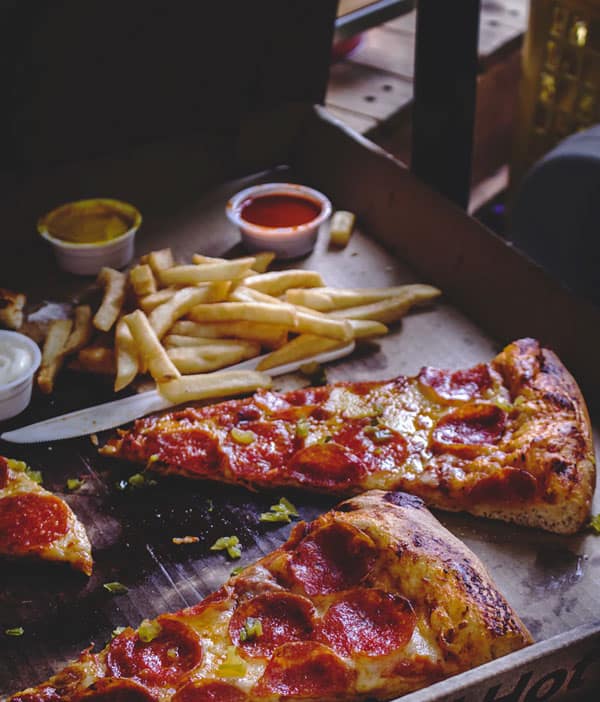
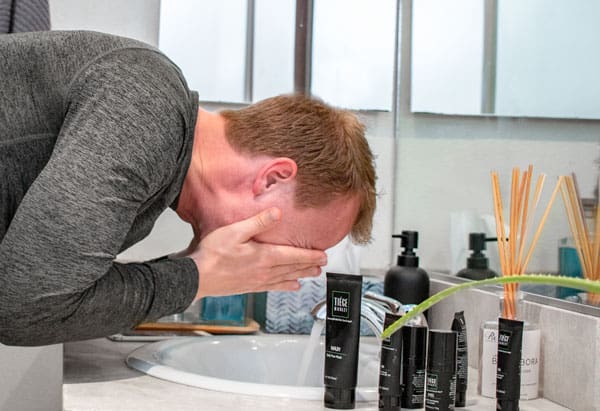
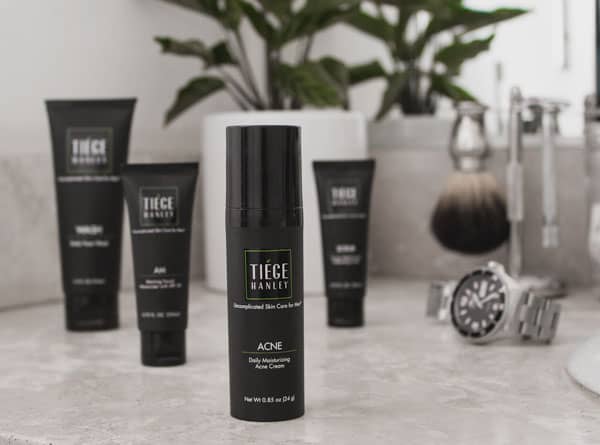

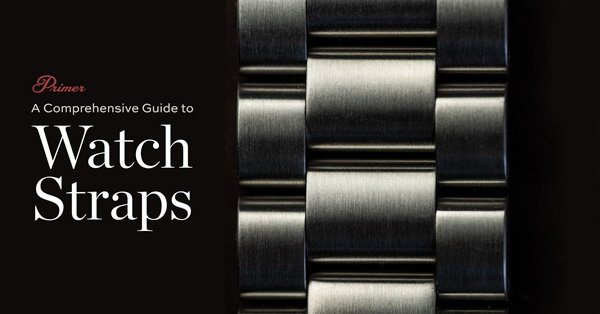
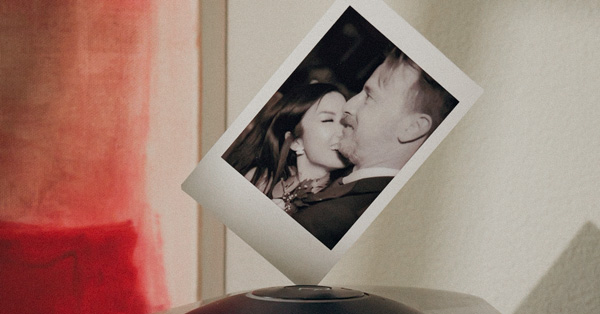

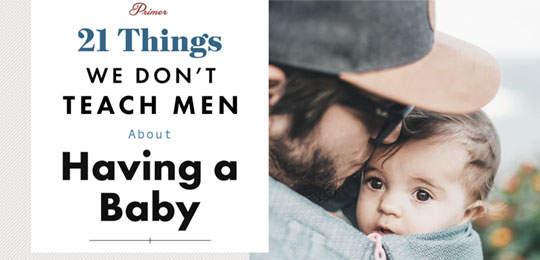

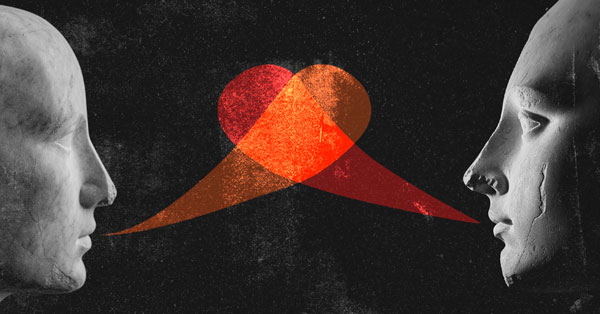
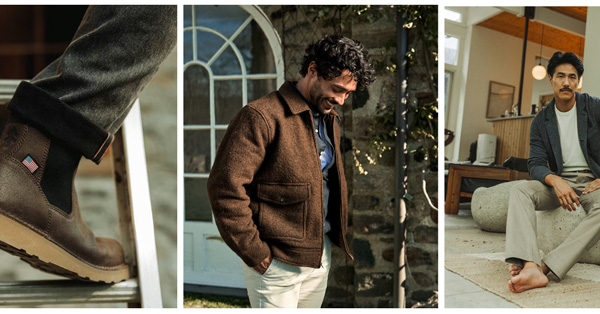




![It’s Time to Begin Again: 3 Uncomfortable Frameworks That Will Make Your New Year More Meaningful [Audio Essay + Article]](https://www.primermagazine.com/wp-content/uploads/2025/01/begin_again_feature.jpg)